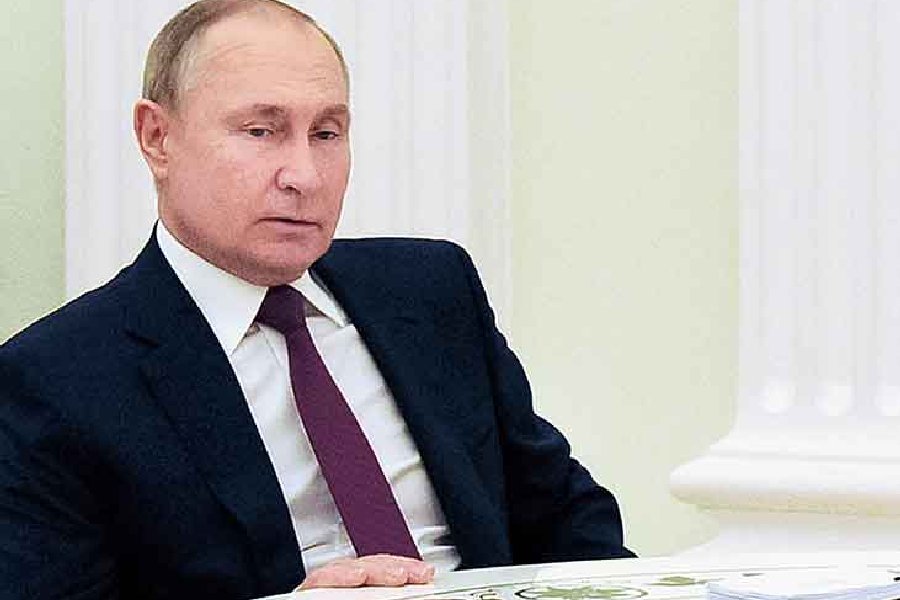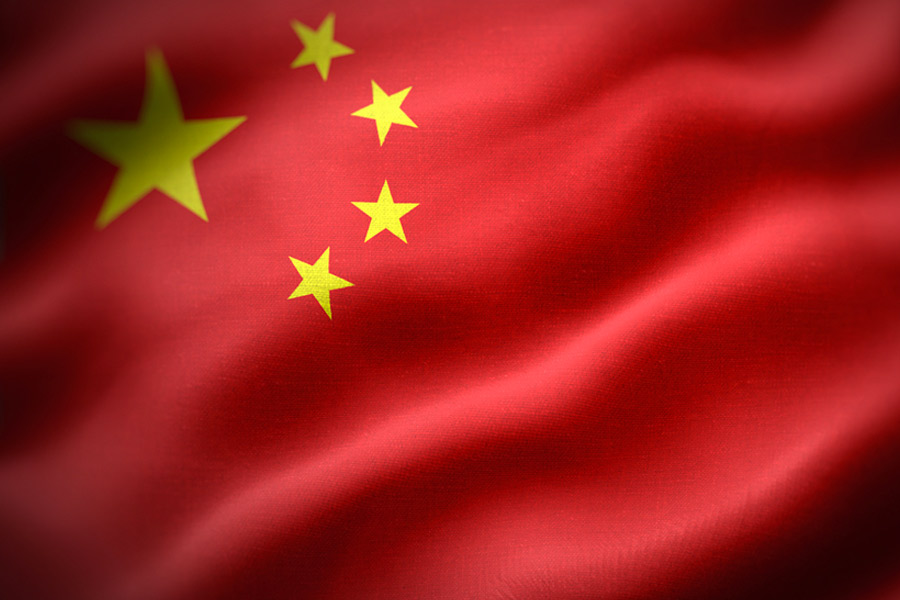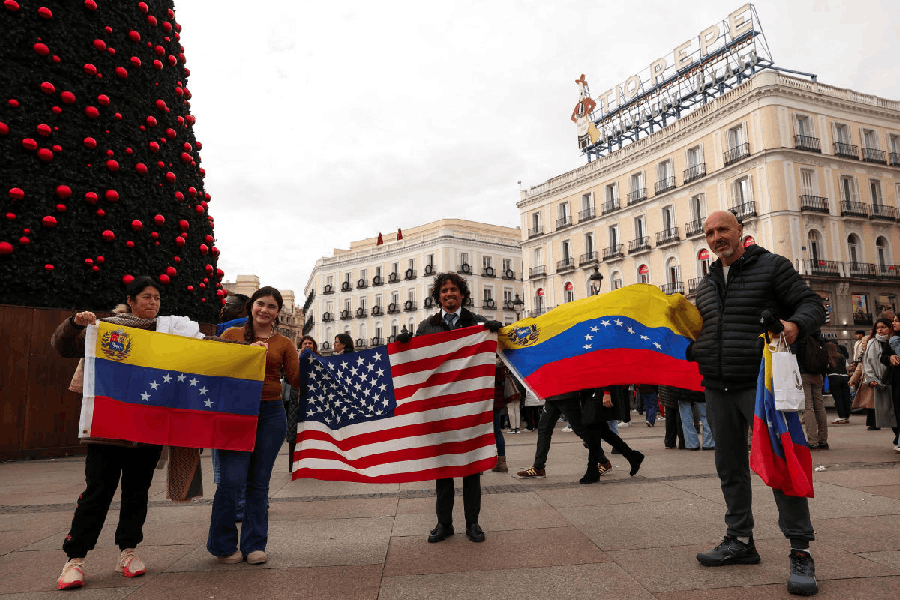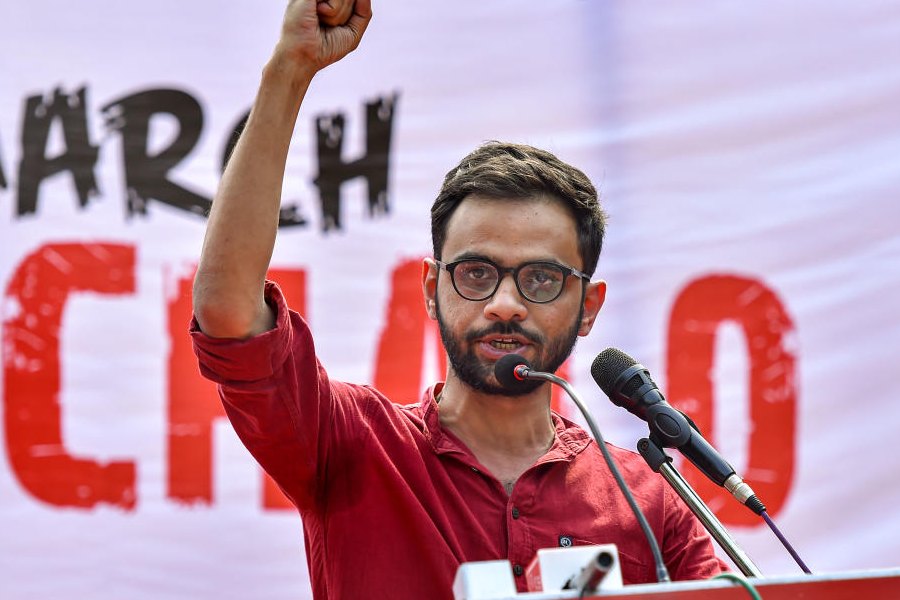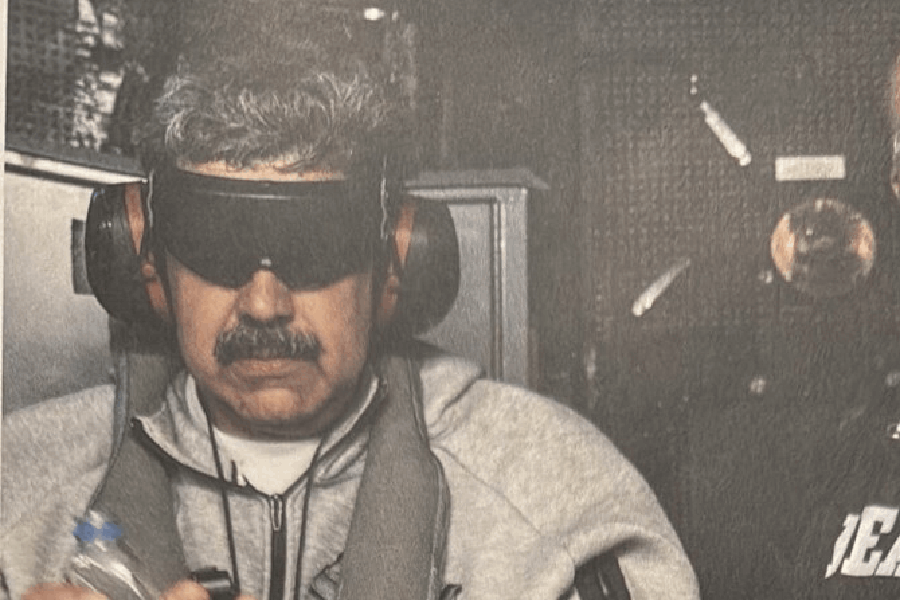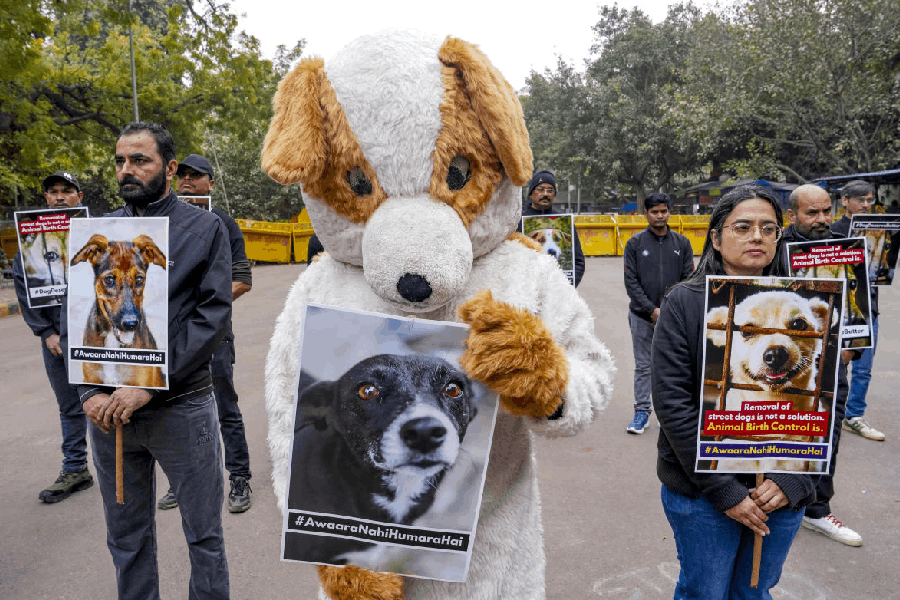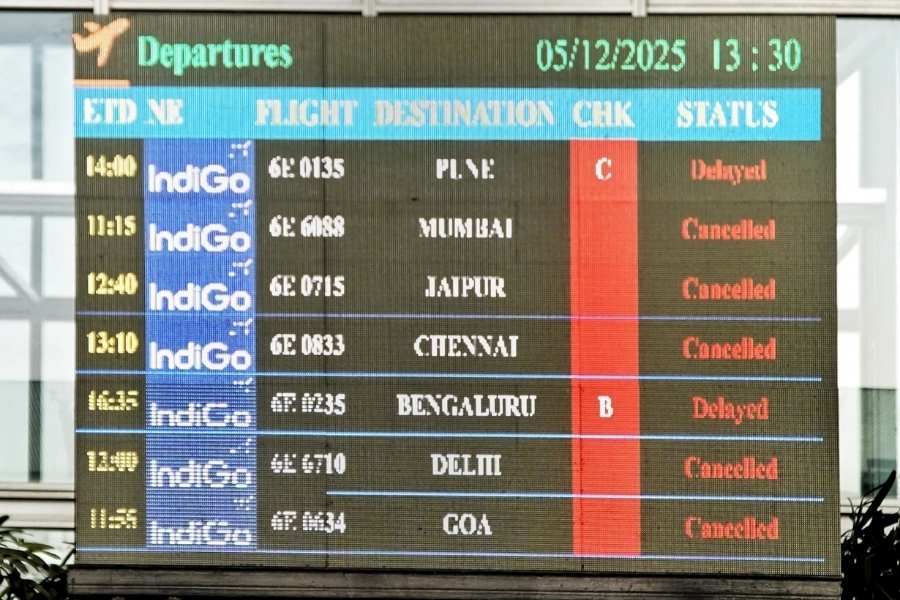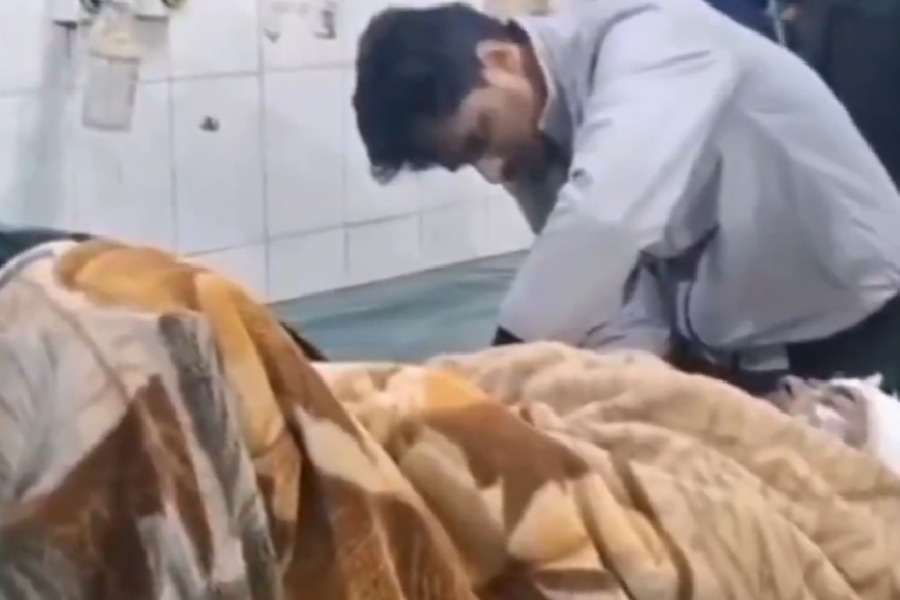A new version of the ABC’s in Russia’s Far East starts with “A is for Army, B is for Brotherhood” — and injects a snappy phrase with every letter, like, “Love your Army”.
A swim meet in the southern city of Magnitogorsk featured adolescents diving into the pool wearing camouflage uniforms, while other competitors slung model Kalashnikov rifles across their backs.
“Snipers” was the theme adopted for maths classes at an elementary school in central Russia, with paper stars enumerating would-be bullet holes on a target drawn on the chalkboard.
As the war in Ukraine rolls into its 16th month, educational programmes across Russia are awash in lessons and extracurricular activities built around military themes and patriotism.
These efforts are part of an expansive Kremlin campaign to militarise Russian society, to train future generations to revere the army and to further entrench President Vladimir V. Putin’s narrative that “a real war has once again been unleashed on our motherland,” as he declared in a sober address at a ceremony last month.
The drumbeat of indoctrination essentially started with Russia’s 2014 annexation of Crimea, but the full-scale invasion of Ukraine has accelerated it. The ministry of education and science releases a constant stream of material, including step-by-step lesson plans and real-life examples — like a video of a student concert that used poetry, dance and theatre to explain the history of Russian foreign intelligence.
“It includes all levels, from kindergarten to university,” said Daniil Ken, the head of the Alliance of Teachers, an independent Russian union, who works from voluntary exile. “They are trying to involve all these children, all students, directly in supporting the war.”
For years, Russia’s leaders sought to condition its citizens to accept Moscow’s leadership, partly by barring politics from schools. Now the Kremlin hopes to persuade the public to actively back the war effort, and when it comes to younger males, to fight.
Yet it also wants to avoid fanning too high a patriotic flame, lest it push Russians to start questioning the purpose of the war. Much the way Putin has refrained from enacting multiple conscriptions of soldiers to avert prompting antiwar sentiment, the Kremlin has left parents some leeway to avoid propaganda lessons.
In that, they may be hoping to avoid the disconnect that emerged in the Soviet era, when the education system portrayed the country as the land of Communist plenty, even as ordinary Russians could see that the shelves were bare.
“They want enthusiasm, but they realise if they push too hard it could galvanise an organised opposition,” said Alexandra Arkhipova, a social anthropologist who studies public reactions to the war. “They do not want people to protest.”
Interviews over the past month with sociologists, educators, parents and students, and a review of extensive material online posted by the schools themselves and by local news outlets, show a comprehensive government effort to bolster military-patriotic content through all 40,000 public schools in Russia.
The cornerstone of the initiative is a programme called “Important Conversations,” started last September. Every Monday at 8am, schools are supposed to hold an assembly to raise the Russian flag while the national anthem is played, and then convene an hour-long classroom session on topics like important milestones in Russian history.
The minister of education, Sergei Kravtsov, did not respond to written questions. When the programme was introduced last fall, he told the official Tass news outlet: “We want the current generation of schoolchildren to grow up in completely different traditions, proud of their homeland.” Both an official Telegram channel and a website disseminate materials for the classroom.
“Important Conversations” has been supplemented by programmes with names like “Lessons in Courage” or “Heroes Among Us.” Students have been encouraged to write poetry extolling the Motherland and the feats of Russian soldiers. Myriad videos show elementary school children reciting lines like, “All the crooks are fleeing Russia; they have a place to live in the West; gangsters, sodomites.”
Lessons draw heavily on earlier conflicts, particularly the Soviet Union’s success defeating Nazi Germany.
“It is very theatrical,” said Arkhipova, the social anthropologist. “It serves as a kind of proof that the entire war is the right thing to do because it mirrors World War II.”
Countless schools have been renamed to honour dead soldiers, and memorials are rife. They include a “Hero’s Desk” in classrooms that often displays the picture of an alumnus who is supposed to be honoured.
Veterans are trotted into classrooms frequently to detail their experiences. In late April in Dmitrov, a small city near Moscow, three soldiers addressed a roomful of students aged 10 to 15, some waving small Russian flags. A video of the session shows one fighter talking about wanting to protect his homeland against “fascist filth”.
Overall, however, there is no monolithic propaganda machine because the decision on how to implement “Important Conversations” has largely been left to local school administrators.
Some teachers take a hard ideological approach. A video posted by the Doxa news outlet showed a teacher demanding that students pump their fists in the air while singing a popular song called, “I Am Russian.” The teacher barks: “The thrust should be to the sky, to Nato.”
Other teachers do not even mention the war, particularly in places like Moscow, where many parents disapprove of attempts to indoctrinate their children.
Yuri Lapshin, formerly the student psychologist at an elite Moscow high school, said in an interview that while researching a paper, he found examples of unique interpretations of the programme. One math teacher, for example, told students that the most important conversation in the world was about algebra, so he dedicated the class to that. On a day supposedly focused on the concept of “fatherland”, a biology teacher lectured about salmon spawning in the rivers where they hatched.
Noncompliance takes various forms. The Alliance of Teachers advised parents that they can formally opt out of the classes, while some have their children show up late or call in sick on Mondays. Defiance makes certain parents nervous, experts said, especially given about a dozen cases where school officials reported on unenthusiastic parents or students.
A woman named Zarema, 47, said she worried about her three sons in school in Dagestan. While she sends her youngest son, a sixth grader, to the “Important Conversations” class, she told him never to engage politically. “We are all scared of everything here now,” she said, asking that her full name not be used while criticizing the war.
New York Times News Service

